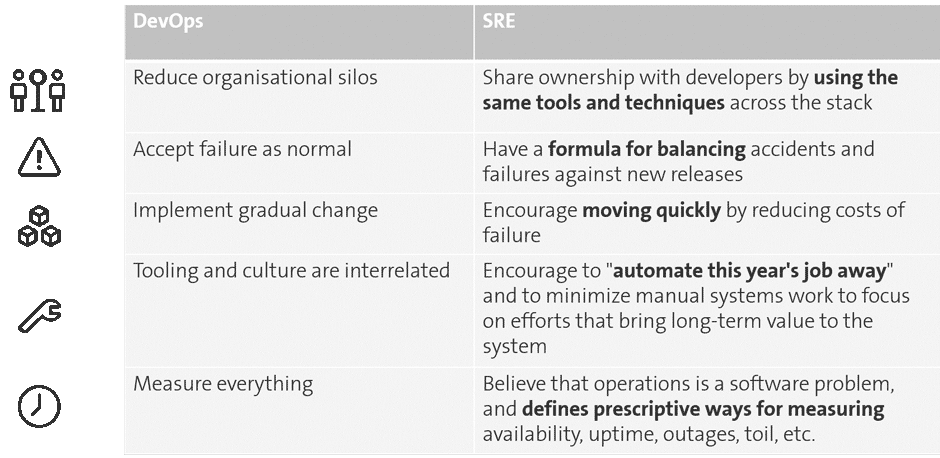SRE
SRE vs DevOps – Competitors or Friends
More and more teams at Swisscom are using Site Reliability Engineering (SRE) to fulfil the expectations of our customers and users. But wait! Didn't we count on DevOps to bridge the gap between Dev and Ops, and to achieve a high quality of our software in production? Is SRE just the new buzzword on the market and used to attract talents? In this blog, the Swisscom's DevOps teams want to create a common understanding regarding the positioning of SRE in relation to DevOps and show how we see SRE at our Software department in Swisscom. Let's start with some theory of DevOps and SRE:


